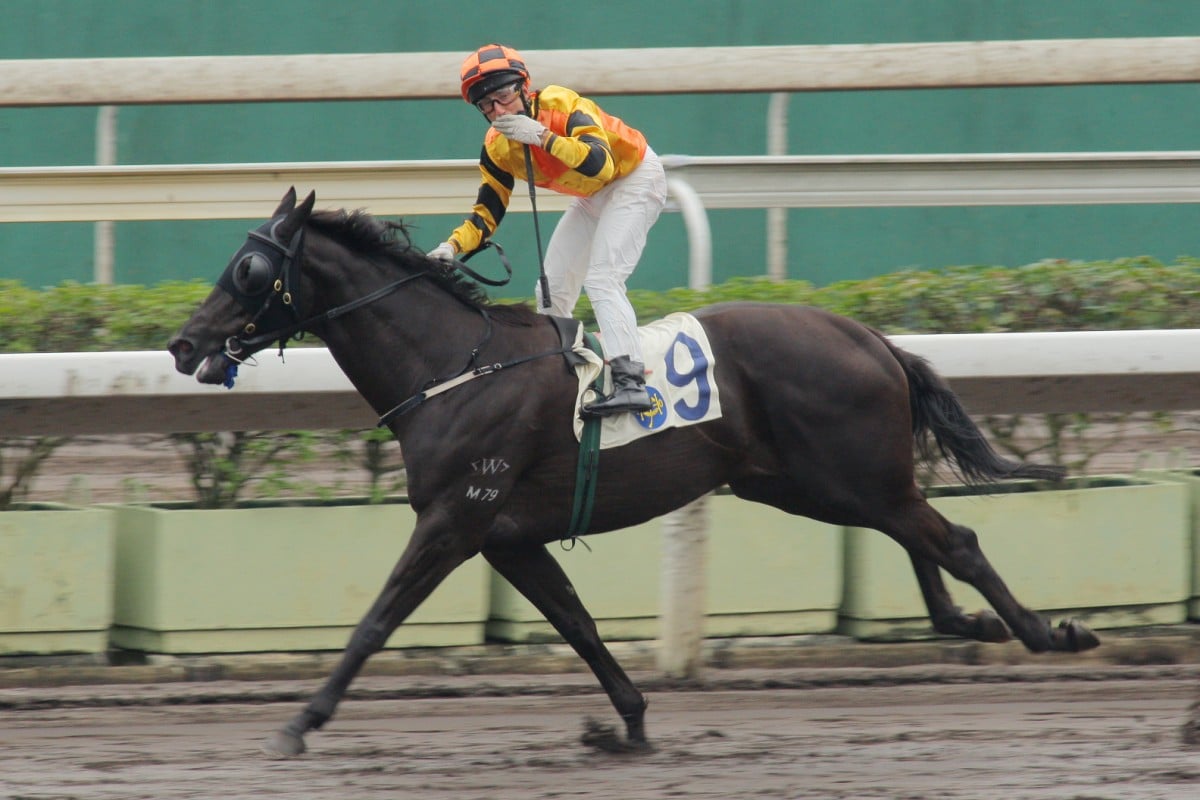There are a few common misconceptions about Hong Kong racing – so we thought we’d take a chance to help out our overseas visitors for the international races. Consider this a user’s guide – a Lonely Planet for punters – with some key points to remember when throwing your hard-earned on Happy Lucky Dragon at Sha Tin on Sunday (he isn’t a real horse, at least not yet).
OVERSEAS FORM DOESN’T MEAN A THING, SOMETIMES . . .
A good horse is a good horse, sure. And he might have won some fancy race with a long name in France. But if he arrives and develops a respiratory complaint worse than Darth Vader, then he isn’t going to produce much – other than phlegm. Ever heard of mucopus? It sounds like a made-up word, and maybe it is. But the stuff exists all right and it would stop a train – if trains had lungs – and it appears in stewards’ reports every other week as a reason for a poor performance.
See that grey and misty stuff in the sky? That’s not all cloud. In fact, it’s pretty much poison to a lot of new horses who arrive here. Until they develop some resilience to the oppressive humidity and poor air quality, and shown they can reproduce their best, you might as well consider them a different horse.
In theory, horses are marked up to their best win by the handicapper so to win they have to at least match that mark, and that can take a while to find. So next time someone says to you “you know (insert expensive import’s name here) is running at Sha Tin today” – maybe look on.
IT’S EASY TO FIND FUTURE WINNERS . . .
It’s easy because everything with four legs screwed on right, and lungs that aren’t full of mucopus, eventually does. At least they will if they are sound and can run a couple of furlongs at three-quarter pace – the system takes care of the rest.
Saying to someone in Australia: “Here’s horse to follow that will win races”, actually means something – not here. Take Hong Kong’s crankiest horse, Apollo Cavalier. This wild-looking chestnut’s best skill is sweating profusely while stalking the pre-race parade ring looking for someone to kick in the head.
While we’re on “kickers”. Is there a better way to signify a horse is a psychopath than tying a little red ribbon to its tail? It’s good that the handlers of nearby horses know the pretty bow actually means “back off”, but it could end in tears if some owner lacking horse sense thinks it’s for decoration. I propose some sort of skull-and-crossbones sign.
It took 10 starts in New Zealand maidens for Apollo Cavalier to finally win a race and he started his Hong Kong career rated 71. He is approaching start 10 in his new home, and is now eligible for the second lowest grade – Class Four. Before long he could find himself in Class Five, where he would make like Johnny Knoxville’s character in The Ringer. So here’s a terrible looking horse, with abysmal form and the temperament of wildebeest but as long as he stays on his feet, he will probably win multiple races.
THE TRIPLE TRIO IS RIDICULOUSLY HARD . . .
Whoever picks the TT races is a sadist. It pays lottery-like dividends because lotteries are easier. This Sunday we get two Group Ones included, but that’s a once-a-season luxury.
First three in any order, in three selected races – the mythical Triple Trio that pays millions-to-one. Sounds like fun. But Mr Race Programmer at the Hong Kong Jockey Club chooses even races where all 14 horses could easily win, or lowly contests where you wouldn’t back any of the horses to get to the track from the parade ring in time for the race.
TRAINERS RELENTLESSLY TALK THEIR WINNERS DOWN POST RACE . . .
In Australia, a horse wins a provincial maiden and the obligatory quote is “This horse should win in town”, some grand plan of how they’ll aim for a black-type race at one of the many carnivals. Maybe they do it to pump up the owners?
Here, there’s no point asking where a horse is going next, because they are going wherever the race schedule and their new rating dictates – the next handicap they’re eligible for.
What happens at the post-race media all-in is like a slow auction/bargaining-type process as trainers put in their wish for how many points the win is worth.
“That’s only gotta be worth eight, hasn’t it?” pleaded Paul O’Sullivan after M’s Magic – a horse which took 19 starts to win – bolted up by 51/2 lengths on a heavily leader biased all-weather track last weekend (he got eight – maybe the Kiwi should have bid lower).
Most horses in time find their level in “the system” and a 10-point win can put them out of their grade, or up in the weights, and make them uncompetitive for a year or more.
Poor old Always Something still hasn’t recovered from winning three of his first five races for John Size and climbing into the high 80s. Now with Richard Gibson, the horse’s rating has dropped to 58 but he hasn’t won in more than three years.
So what we get after a race is a comprehensive run-down of horse’s issues and ailments, telling us just how bad Lucky Dragon Fortune Star actually is.
If you listen to the post-race press conferences after low-grade events, you’d think the only English phrases some trainers know are: “This is a limited horse”, “That was weak field”, “lameness” and “mucopus”.
IN SUMMARY . . .
On Sunday, forget the Triple Trio you were going to build around two-time English Group Two runner-up Roman Soldier on debut in race six. And when Little Cow (yes, that’s his name) lines up in the opening event, gunning for three straight, don’t be put off by the fact his trainer says he is a grade three (or is that four?) roarer. It hasn’t stopped him yet.

















